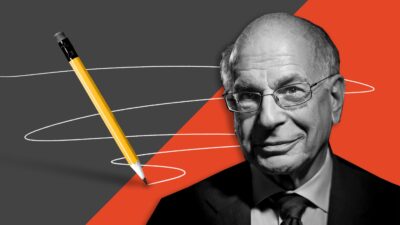
Fast forward: the future of work
As technology liberates employees from fixed desks and workforces become globalised, the nature of work and how it is conducted is rapidly changing – and managers need to change with it.
Every time I walk into a cafe, I observe how technology is transforming the way people work. Once the sanctuary of coffee snobs and the brunch brigade, Australian cafés are the new bastions of work, where you can order a latte with a hot desk to go.
Australians enjoy some of the most reliable internet network coverage in the world and are among the world’s largest users of mobile devices, enabling them to work pretty much anywhere, anytime. Much of the office space consolidation in corporate Australia is driven by work increasingly being defined as what people do, not where they spend their working day.
Technology is just one of the major global megatrends disrupting modern workplaces and triggering a reimagination of how and where work is done. But what does this mean for our leaders, and how well equipped are they to lead in the future of work?
The author of The Shift: The Future of Work is Already Here, Lynda Gratton, a globally recognised authority on future-of-work trends, says the changes workplaces are experiencing are as significant as the industrial revolutions of the 18th and 19th centuries.
Gratton and her International Future of Work Consortium have identified five key future-of-work trends: disruptive technology; globalisation; demographic change and longevity; societal expectations; and scarcity of natural resources.
By 2025, Gratton predicts these trends will produce five generations in the workforce, 5 billion people connected by hand-held devices, India and China as global powerhouses, workplace flexibility and non-traditional career paths as the norm, and a scarcity of natural resources driving a move to sustainable, agile workplaces.
So what qualities are critical for leaders in the future of work? In a globally connected world there is nowhere to hide, so authentic leadership becomes critical as leaders are judged on their ability to manage diverse, global teams.
Leaders will also be judged on their ability to influence and inspire as traditional leadership symbols, such as hierarchy and a command-and-control management style, become less relevant.
An agile management style that can navigate complexity and ambiguity will also be important in managing the unprecedented rate of change and disruption predicted. Leaders will also need to be connected beyond just social media groups as globalisation drives a war for talent and resources. In the new world of work, knowledge will be a crucial commodity, and the truly great leaders will be defined by their ability to turn complex issues into innovative solutions.
Are leaders in Australia ready for this new world of work? Many are at risk of failing to capitalise on the future-of-work megatrends due to a historical culture of presenteeism in the workplace and a propensity to hire a mirror image of themselves, which often limits innovation and productivity.
Australia’s next major economic boom will be driven by the services industry, and the nation’s ability to reap the rewards of this will largely depend upon the degree of progressive change in our society on diversity, as it is established that diverse teams are more innovative and productive.
The more progressive organisations are aware of the megatrends and understand the business imperative for diversity. They are addressing the gaps in their workforce to increase the representation of women in leadership, culturally diverse leaders, flexible workers, people who identify as LGBTI, employees with disabilities and intergenerational teams.
This article was originally published within The University of Sydney Business School’s Magazine, Sydney Business Connect (p15, April 2016 edition). Read the original article.
Image: Steven Zwerink
Jane Counsel is the Principal Consultant of the Diversity Central Consulting business within Executive Central. She is also a co-facilitator of two units in The University of Sydney's MBA program where she is helping develop the inclusive leadership, critical analysis and thought-leadership skills of the next generation of Australian business leaders, drawing on 22 years of corporate experience and expertise.
Share
We believe in open and honest access to knowledge. We use a Creative Commons Attribution NoDerivatives licence for our articles and podcasts, so you can republish them for free, online or in print.







